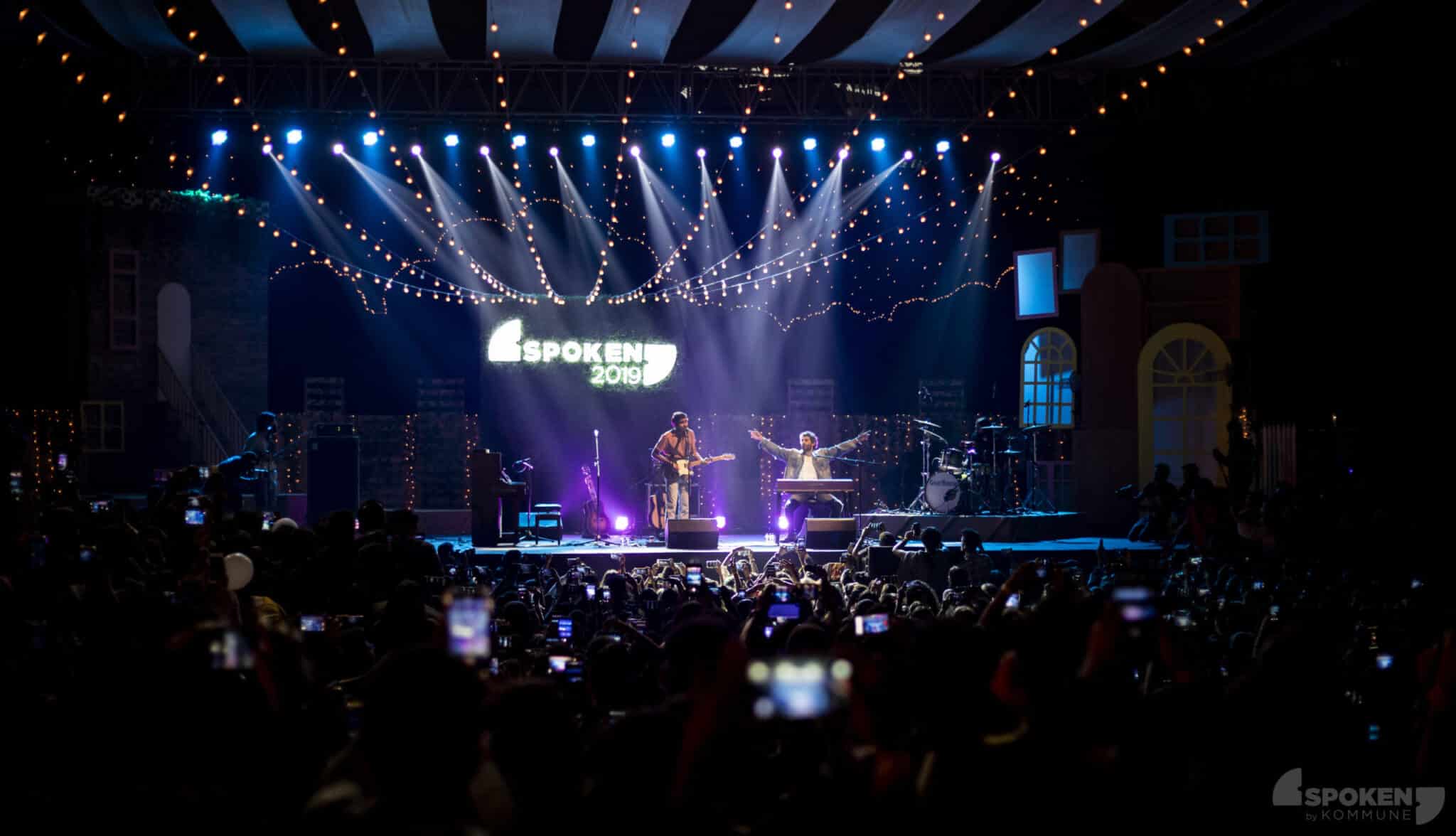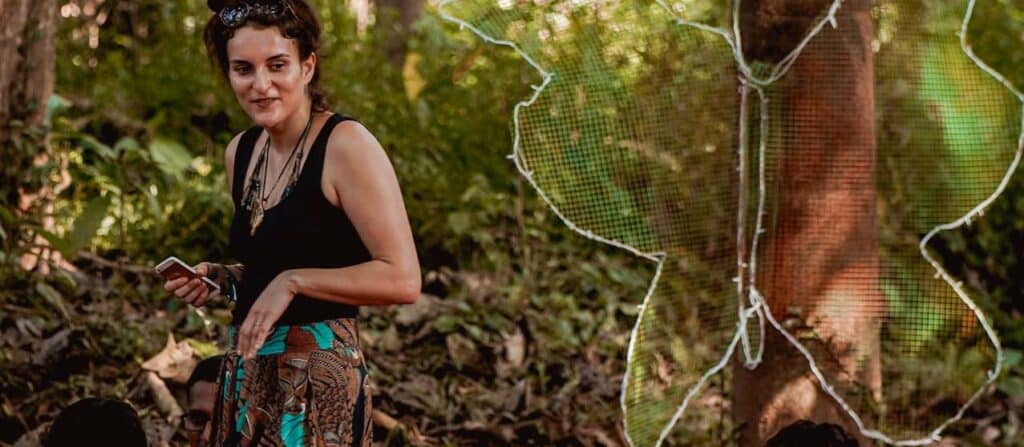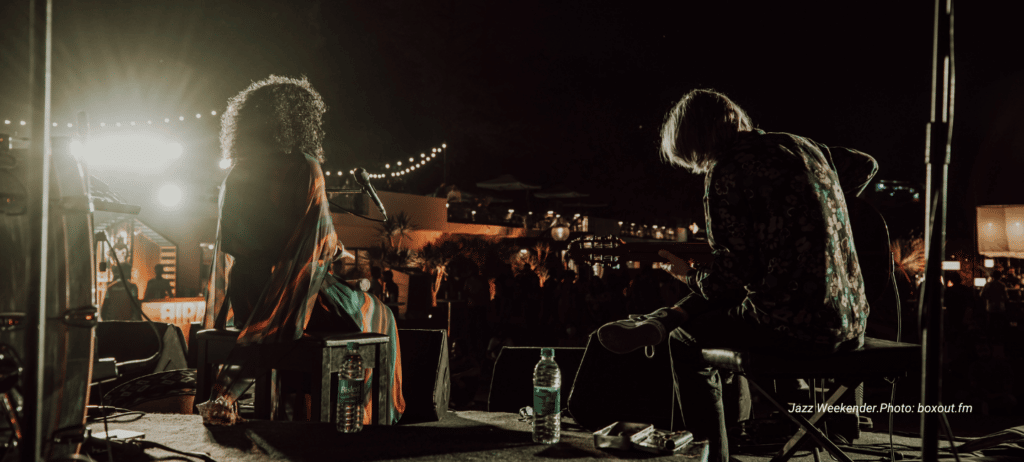Spoken Fest – a forum for dynamic voices in storytelling, poetry, spoken word, stand-up comedy, theatre, and music from India and around the world – celebrates the power of words. Over 50 musicians performed on five stages during this two-day festival, which included panel discussions, master classes, and workshops in English, Hindi, and Urdu. Conceptualised by Roshan Abbas, Spoken Fest 2022 was the perfect weekend experience showcasing a spectacular & exciting line up of 75+ artists, including Vir Das, Srushti Tawde, Rahul Subramanian, Ahsaas Channa, Sachin Pilgaonkar, Mithila Palkar, Priya Malik, When Chai Met Toast, Sid Sriram, Sumukhi Suresh, Sushant Divgikar, Anup Soni, Babil Khan, Kareema Barry, Kubbra Sait, Osho Jain amongst others. It was intended for “the individual who’s not wanting to tune out, but tune in,” according to its organisers, who often refer to it as “the empathy bootcamp.” We spoke to Shantanu Anand, Vice President – Content and Community; Aditya Jadhav, Experiences Lead; and Saurabh Kanwar, Chief Executive Officer of Spoken Fest, to gain insights about the festival that is back after its last edition in 2020.
You have described Spoken Fest as ‘the Mecca of the mindful millennial’. Could you elaborate on how this guided the programming?
We have had the privilege of having an audience who is really mindful, and who wants to actively engage with the content, rather than being a passive consumer. They are mindful of how the space looks, and what the decorations are. Even the words that we had put on signboards, the decorations across the festival had been put up keeping in mind our audience. They come to Spoken Fest where they do things they’ve not done before. And possibly they would share stories that they won’t share again. The performers were also aware that even though they are experienced performers, they were trying something new. They have done multiple rehearsals and drafts, knowing that they have an audience who will listen very intently to them.
If I were to attend Spoken for the first time, what should I expect?
Different kinds of sounds. Sounds of conversation, music, the sound of drums, guitars of electric guitars of voices. We’re talking confessional sound, the sound of someone contesting something. We’re talking about lullabies that calm you down, and loud roars that wake you up; the sound of laughter, of passion. All kinds of sounds, and colours, both literally and metaphorically. You think of the stage as a canvas, right, as a blank canvas, every artist is coming to add their own thumbprint to that Canvas to share parts of themselves. On that canvas. Every person who is stepping onto a spoken stage is coming to be the most authentic version of themselves. What happens there is that then you don’t know what you’re being exposed to. It is a space where different people come with real, unaltered versions of themselves.
How did you select the musicians, spoken word artists, storytellers, poets, comedians and actors participating this year? What is your main criteria when programming the line-up?
Our criteria were to select artists for Spoken Fest that make you feel something. Whether the genre is music, poetry or story, it should make you feel either nostalgic or wistful. In some cases, it might make you feel sorrowful or ecstatic. The guiding theme almost was to guarantee that anyone who attends the festival might shed a tear, laugh, or sing along, some time or the other.
What made the 2022 edition different from previous years?
I think we focused a lot on connection. This is not a festival of passive consumption. We’ve built a lot of experiences for people to be able to speak with each other. There was this central area in the festival, called a Spoken Chaupal which was a tree-like structure where people gathered around, and talked to each other. An old-school concept. There were music jams, poetry, dance, storytelling, art therapy and more. Spoken Fest has been about connecting with people around. We often use the phrase ‘come as strangers, leave as friends.’
What were some of the highlights in terms of the workshops?
I’d love to start with Satyanshu Singh who did a workshop on screenwriting, which was structured as a conversation, similar to the Gurukul style of education. Second is Shreya Punj, a Penguin-published author who did a writing workshop, which also covered the world of publishing. There was also a Spotify podcasting workshop. So Rituraj Singh and Varun Duggirala did a masterclass on a podcast.
Could you briefly describe the Make Friends With Strangers and Art Scavenger events?
There was this activation, called Art/Heart in which people sit across each other and the conductor gives cues, which activates the conversation and the art flow together. And at the end of it, the two people have known each other a bit and the last cue Is to draw the person sitting in front of you. People ended up drawing nice, fun portraits, including elements of personality, which they picked up from the conversation with the other person.
And scavenger hunt was not a traditional scavenger hunt. It was called Spoken Odyssey, like the Greek Odyssey. There are four characters on the ground, dressed up as folk characters. You interact with them, they lead you in certain activities, and you find some gifts. It was also connected to an online website where you get certain points that you could redeem at the stalls and different brand spaces.
Could you explain the “self-care” aspect of the festival?
The self-care aspect actually has been focused on this year. So we had one art therapy, a number of intimate experiences like a poetry sharing circle where people can share their feelings through poetry, then we had a ‘tune-in zone’, which was basically a vinyl record listening station. The space was decked up as a living room where you could sit and tune into some songs in old-school fashion. Additionally, there were a number of smaller things such as colouring books for adults and other activities.
How do you partner with brands in a way that the audience doesn’t feel like they’re being sold something through their festival experience?
A great brand partnership stands on 3 legs: Platform, audience and sponsor. Therefore, a great integration should satisfy all three stakeholders. It must fit the logic and ethos of our IP or event It has to appeal to the typical attendee emotionally and/or rationally. And obviously, it should be congruent with the brand identity and culture.
How much of a say do your brand partners have in designing the experiences they sponsor?
The brand partner is the one paying for the experience, and that can only happen with discussion. That being said, our best partnerships have always happened when we have taken the trouble to understand and research the brand’s needs well enough so that the only real discussion is the price.
If I had only one hour to attend the festival, how should I spend it?
Come at any random time. Don’t plan. Don’t plan your day. Come and be surprised. Spoken Fest is about discovery and openness. It is a place where you will discover your new favourite artists. If you’re coming for one hour, come for people you’ve never experienced before. That’s how you will actually make the best use of your time.




Share on